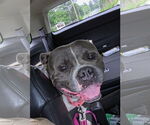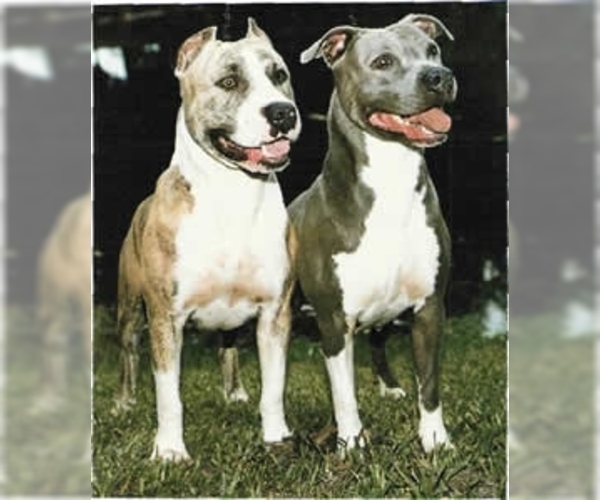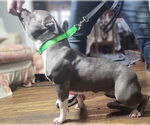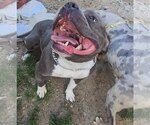
TONKA - AMERICAN PIT BULL TERRIER (SHORT COAT) DOG FOR ADOPTION
American Pit Bull Terrier Dogs For Adoption in Stanhope, NJ, USA
For Adoption
-
Nickname:
Tonka
-
Breed
-
Gender
Female
-
Age
Adult
-
Location
Stanhope, NJ, 07874 USAUSA
Description
Dog Breed: American Pit Bull Terrier (short coat). **COURTESY POST - IF INTERESTED TEXT 862774-9215** Tonka is almost 3yrs old, spayed and up-to-date on everything. Heartworm negative and walks great on a leash! She loves everyone she meets. She is good with male dogs but not females. She is about 55 pounds and loves to ride in the car in her car seat. She must be the only female. If interested, please text 862 774-9215
-
Physical Attributes
Coat Length: Short -
Behavioral Characteristics
Other: - Housetrained
-
Additional Information
Was the Dog Found No Other - Up-to-date on Vaccinations
Let PuppyFinder Help!
Save Time. Get The Right Match. Buy Puppy Safer.
CREATE A WANTED ADRescue Information
-
Organization name
BARKS (Byram Animal Rescue Kindness Squad
-
Location:
Stanhope, New Jersey, 07874 USAUSA
Breed overview

American Pit Bull Terrier
A.K.A.: Pit Bull, APBT, AmStaff, American Staffordshire Terrier, Stafford, Staffy, Pibble, Pittie, Bully, Bull breed, Working Pit, Colby Pit, Old Family Dog, Old Family Red Nose, Red Nose Pit, Blue Nose Pit, Game Dog, Fighting Dog, Gladiator Dog, Nanny Dog, American Bull Dog, Bull and Terrier, Half-and-Half, Yankee Terrier, Irish Pit Bull, English Pit Bull
Overview:
The American Pit Bull Terrier (APBT) is a robust and intelligent breed, originating in the United States from crossbreeding Old English Terriers and Old English Bulldogs for dog-fighting purposes. Physically, they are medium-sized, known for their muscular build, broad heads, and powerful jaws, typically weighing between 30-60 pounds. Their coats are short and come in a wide array of colors. Temperamentally, a well-socialized APBT is often described as loyal, affectionate, and people-oriented, displaying a playful and sometimes clownish demeanor. They can be excellent family companions, provided they receive consistent training and early socialization, though their high energy levels mean they thrive with active owners. While they can adapt to apartment living with sufficient exercise, a house with a secure yard is often preferred. Notable health considerations include a predisposition to hip and elbow dysplasia, allergies, and certain heart conditions.
See more...


